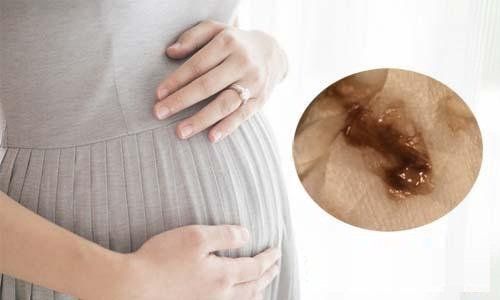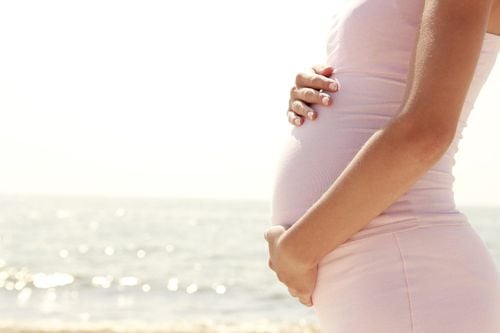Every mother wants her baby to be born full-term and develop properly. However, the signs of impending labor at week 38 make many mothers anxious. So, is it safe to give birth at week 38? Is it considered premature, and are there any risks for the baby?
1. Is it safe to deliver at week 38?
"Is it safe to give birth at week 38?" or "Should I consider a C-section at week 38?" are common concerns among pregnant women, especially first-time mothers.
The answer is that giving birth at week 38 is not considered premature and is absolutely safe.
From week 37 to 40, a fetus is considered full-term and can be born safely. However, the ideal timeframe for delivery is from week 39 and 40. Deliveries before week 37 are categorized as preterm.
Therefore, mothers delivering at week 38 do not need to worry too much about the baby's health, as by this time, the baby typically measures about 50 cm in length, weighs approximately 3 kg, and all organs have fully developed.
2. Signs of labor at week 38
Below are some signs of labor that mothers can recognize:
- Dropped and lowered belly: A few weeks before delivery, the baby may move down into the pelvis. For mothers giving birth for the second time, this sign may be less noticeable, and labor signs may only appear when delivery begins.
- Opening of the cervix: At week 38, the cervix gradually dilates and gets thinner. The rate of dilation varies among pregnant women.
- Increased cramping and back pain: Cramps, pain in the pubic bone, groin, and lower back are common labor signs, especially for first-time mothers. These occur due to the stretching of the pelvis and uterine muscles in preparation for childbirth.
- Diarrhea: Diarrhea can also be a sign of labor at week 38. The cause of diarrhea is due to the muscles in the uterus being stretched and preparing for the birth process, causing the entire body of the pregnant mother to change, including the rectum. Diarrhea will make the pregnant mother tired and uncomfortable, but this is completely normal. Mothers should drink plenty of water, avoid hard-to-digest foods, and refrain from overeating.
- Stabilized weight: Towards the end of pregnancy, the mother's weight often stabilizes or even decreases slightly. This is normal and does not affect the health of the mother or baby. The weight reduction is due to a decrease in amniotic fluid.
- Vaginal discharge changes color and bloody show appears: A few days before labor, pregnant women will see changes in vaginal discharge and increased secretion. The reason is that the mucus plug that seals the cervix to prevent infection has come off. In some cases, the mucus plug comes off with a little blood. This sign is called “bloody show” and it is a signal that your labor is about to begin
- Strong and continuous contractions appear: When preparing for labor, uterine contractions are the most obvious sign to recognize. Uterine contractions will make the mothers feel pain, and discomfort, and show no signs of relief or disappearance when changing positions and the frequency of contractions will be frequent, regular, about 5-7 minutes apart
- Water breaking: Water breaks when the amniotic sac ruptures, causing amniotic fluid to leak from the vagina. This is one of the accurate signs of impending labor that pregnant mothers need to pay attention to. When water breaks, pregnant mothers need to go to a medical facility to prepare for the journey to deliver their baby.
3. Precautions at week 38 of pregnancy
When pregnancy reaches week 38, mothers should:
- Prepare essentials for childbirth: Labor can start anytime after week 38, so ensure all necessary items for childbirth and post-delivery care are ready.
- Stay active with light exercise: Avoid prolonged bed rest. Activities like walking help the baby's head engage in the pelvis and facilitate a smoother delivery.
- Manage stress: Anxiety and overthinking are common as the due date approaches. Relax with light exercises, breathing techniques, music, or reading.
- Wear comfortable clothing: Pregnancy can cause overheating and sweating due to hormonal changes. Opt for loose, breathable clothing, drink plenty of water, and stay in a cool environment.
This article has addressed concerns about giving birth at week 38. At this stage, regular prenatal check-ups are essential to determine the optimal delivery time and method. When labor signs appear, head to the hospital and prepare mentally and physically for a safe and smooth delivery.
To arrange an appointment, please call HOTLINE or make your reservation directly HERE. You may also download the MyVinmec app to schedule appointments faster and manage your reservations more conveniently.













